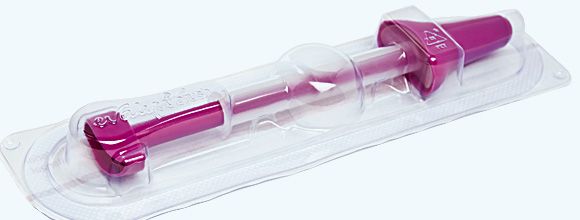A new self-sampling device that carries out cervical cancer screenings has been successfully tested in Denmark, reports DR.
The so-called Evalyn Brush has been developed to sample cellular material from the vagina and is designed for easy use at home.
The device can detect the prevalence of the HPV-virus (Human Papillomavirus) in the vagina, which is believed to cause cervical cancer.
Effective solution
Hvidovre Hospital offered the device to a trial group of women from the Capital Region, aged between 23 and 65, who had previously declined participation in a preventative screening program.
Some 5,000 women have tried the Evalyn Brush since May 2014, which corresponds to 20 percent of the whole group.
“It is a really good result,” Jesper Bonde, a chief doctor at Hvidovre Hospital, told DR.
“Thanks to the brush, we have a very effective way of detecting and preventing cell changes, and we will be able to see it on the cancer curve in the next few years.”
Like inserting tampon
To use the brush, women have to insert it into their vaginas while standing, as if they were applying a tampon, and then twist it inside to gather the cells.
Then they send it to a lab for examination and in ten days they get their results.
If the results are positive, the women are invited for an additional screening.
From within the trial group, nine women have tested positive for cancer and 67 have been diagnosed with severe cell changes.
In Denmark, women aged 23-50 are invited for a complimentary cervical cancer screening once every three years and women aged over 50 once every five years.
Even though the screenings are offered free of charge, some women ignore the invitation.
“We know very little about why some women refuse to get tested. It may be for cultural or religious reasons, or due to the general discomfort of getting a gynecological examination. Or something as simple as finding the time on a busy day,” said Bonde.
According to the Danish Health and Medicines Authority, some 375 women annually tested positive for cervical cancer and about 100 of them die as a result of the disease.
Additionally, around 6,000 Danish women in the preliminary stages of cervical cancer undergo a surgery every year.
As a way to prevent the disease, Denmark offers free HPV-vaccinations to all girls aged 12-17.














